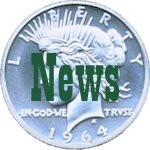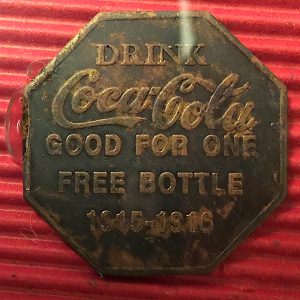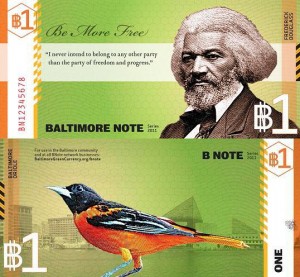Gregory Martin wrote to the editor for KendallCountyNOW.com that he would ” like to bring to mind the concept of starting your young ones on starting a coin collection.”
In three of the four paragraphs, Martin shows his passion for both collecting and how it relates to history. He mentions the 3-cent nickel and the 1943 steel cents as gateways into understanding what was happening in our country’s history.
Martin may have touched on something that today’s teachers can use to explain history. For example, the story of westward expansion was more about economics than exploration. People left the east for better opportunities, to find gold, discover silver, or for 40 acres and a mule. These stories can be taught using the money of the times.
As collectors, we know about fractional currency, postage stamp money, and why arrows periodically appear on minor coinage of the time. However, using these tangible items as props, a teacher can explain the history and show the results by using the money of the time.
Every coin, currency, and token is a reflection of the times when and where produced. A teacher can use the history of the San Francisco Mint to teach about the Gold Rush and the Great Earthquake of 1906.
The New Orleans Mint had its place in the Civil War.
The Carson City Mint is as much a story about the old west as it is about the economic battles, including the Crime of ’73.
Trade and sales tax tokens can show how stores, states, and municipalities tried to work through the Great Depression. Transportation tokens show how transportation had grown in the 20th century. And how some cities, like Baltimore, issue its own “currency” to help promote local business.Using numismatics to learn about history goes beyond the United States’ borders. After becoming interested in Canadian coins, I learned more about the British monarchy and the decline of the monarch’s power by studying the transitions from Queen Victoria to Queen Elizabeth II.
After finding three banknotes from the State of Chihuahua, I learned more about the Mexican Revolution after trying to understand why currency for a three-year state existed.
Maybe it is time to take the saying “history in your hand” and turn it into something tangible. After all, a handful of trade and sales tax tokens may have more of an impact than just reading about the Great Depression.
And now the news…
A Utah businessman paid $1.32 million for a dime last week at a Chicago coin auction. It wasn't just any 10-cent piece; the 1894-S Barber Dime is one of only 24 that were ever made, according to Stack's Bowers Galleries, which held the auction Thursday night.  → Read more at cnn.com
→ Read more at cnn.com
TREASURE-hunters have dug up a hoard of ancient silver coins dating back to the Battle of Hastings in 1066 – worth an impressive £5million. A metal-detecting couple made the lucky find while searching an unploughed field on a farm in north-east Somerset.  → Read more at thesun.co.uk
→ Read more at thesun.co.uk
Such a hobby does not take a lot to start and can be rewarding in so many ways. To start with you learn about money and in it's many denominations, including the Civil War 3 cent nickel! In American collecting you can observe the way our country grew and developed, gaining a perspective on people and actions of this great nation.  → Read more at kendallcountynow.com
→ Read more at kendallcountynow.com
For the first time in almost half a century the Treasury has ordered the Royal Mint to stop producing any 1p or 2p coins. The crackdown on coppers comes at a time when all our cash is under threat – with banks preferring that we pay for goods online or with cards because it saves them money.  → Read more at thisismoney.co.uk
→ Read more at thisismoney.co.uk




Scott
I agree 100%. I was at a January Florida United Numismatists show a few years ago and started looking at a box a dealer had with cheap foriegn currency. I found a colorful $10 note from an organization I had never heard of, the Eastern Caribbean Central Bank. A quick look on Google with my phone explained who it is. It is a group of Eastern Caribbean Islands that have the same central bank. I decided to buy it. I still have it. There are things to be learned from cheap items.
Sincerely
Bob